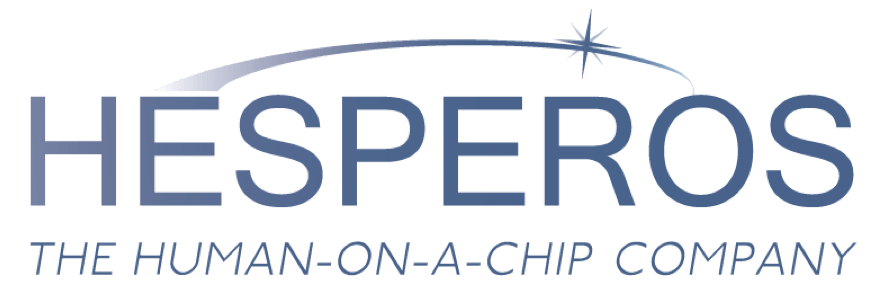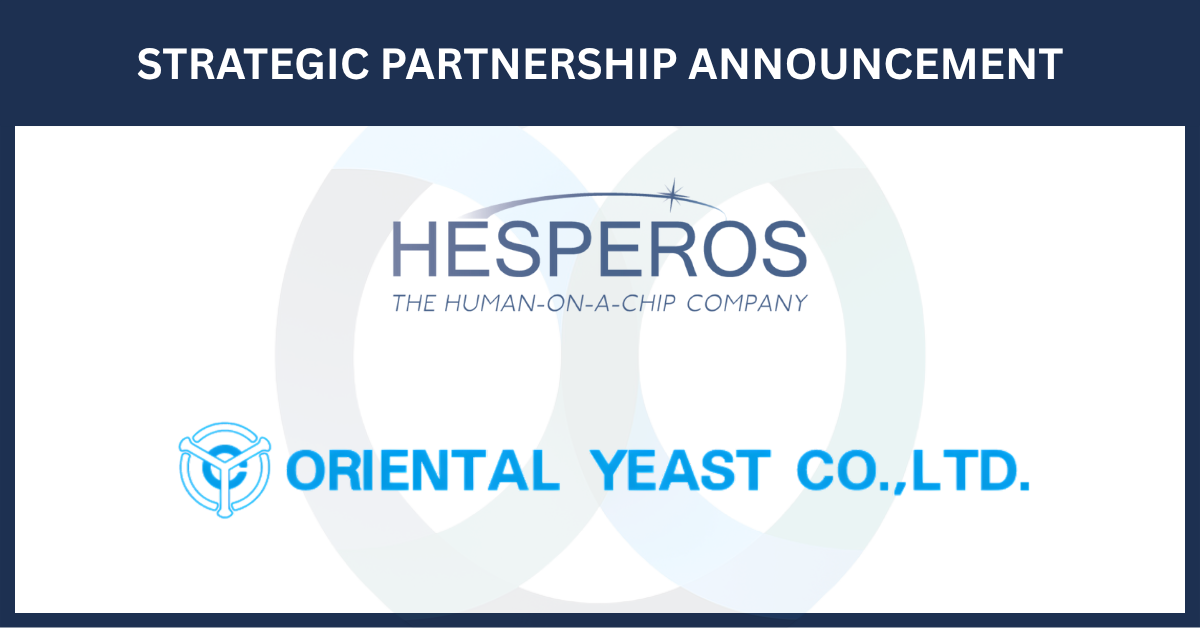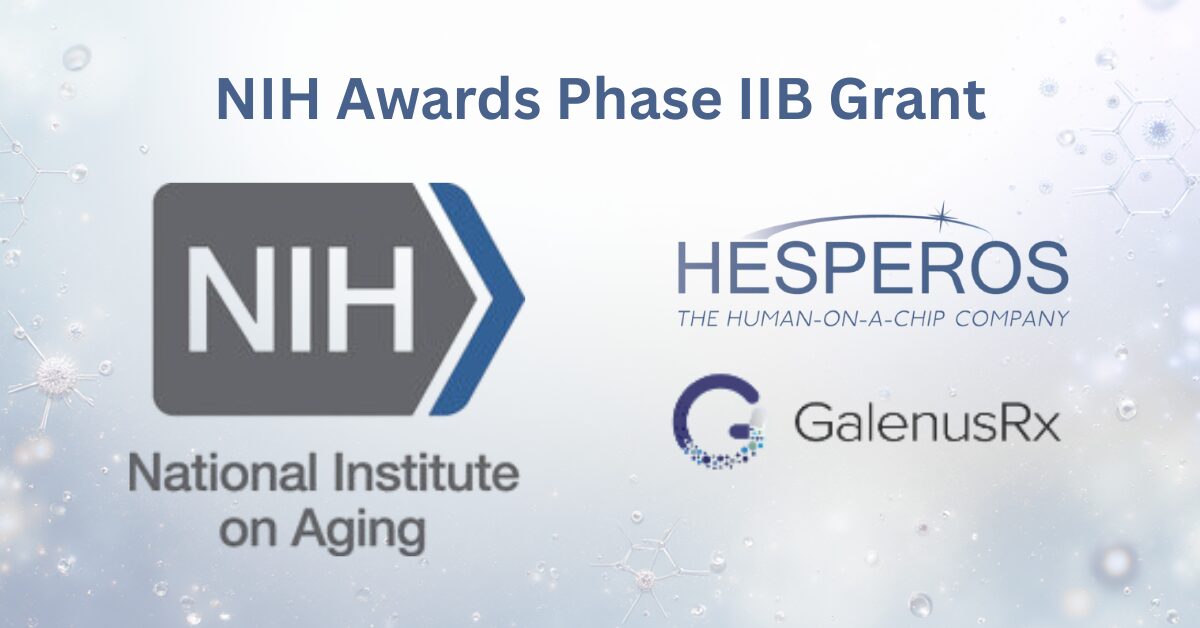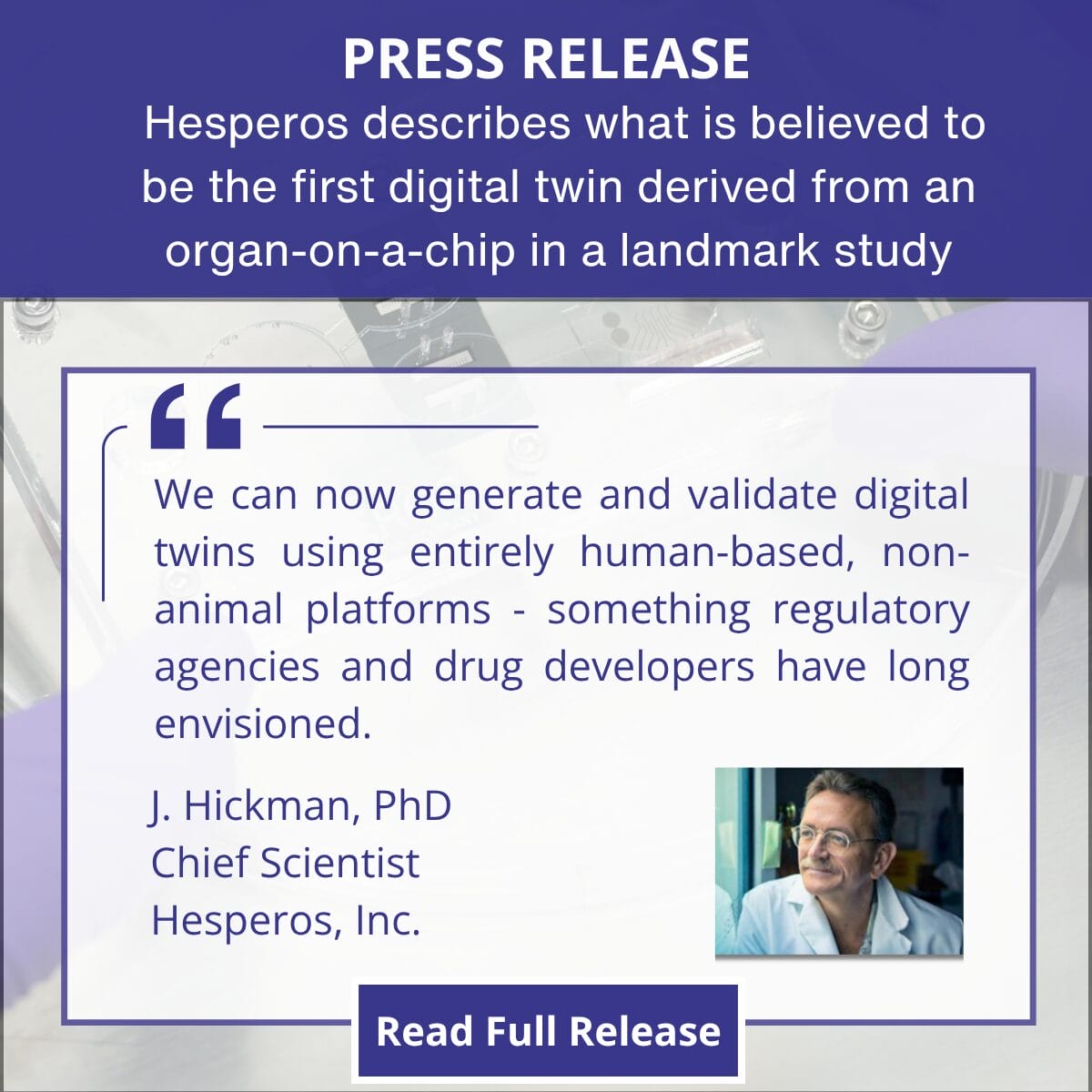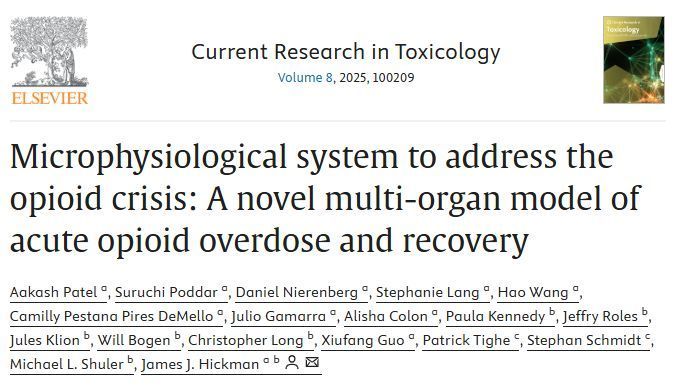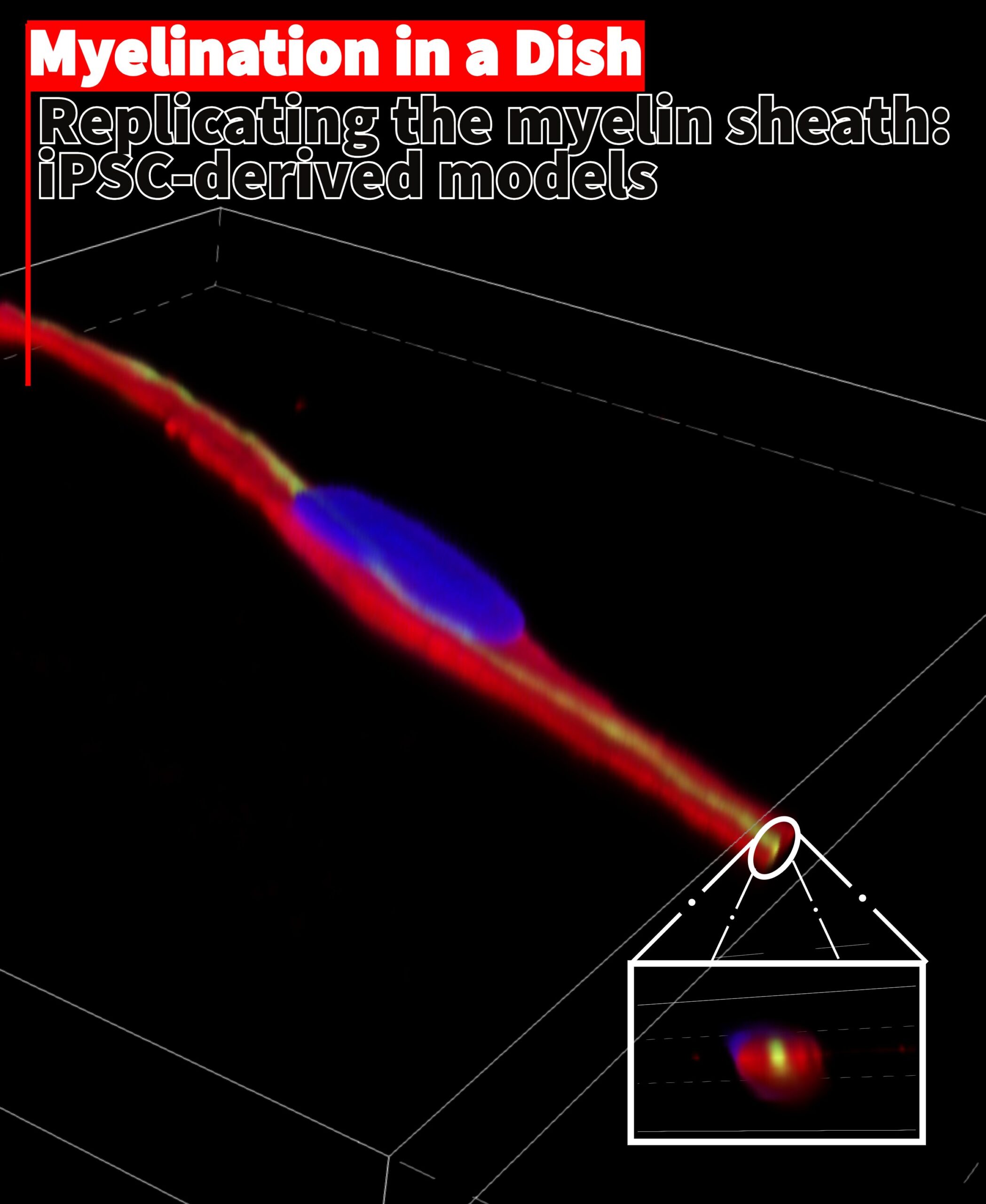PRESS RELEASE Key Results from Study First Digital Twin from Organ-on-a-Chip: Hesperos successfully created what’s believed to be the first digital twin derived from an organ-on-a-chip (microphysiological) system.Multi-Organ Human System: The study utilized a multi-organ system … Read More
Key Takeaways Hesperos aims to accelerate the preclinical development of Psilera’s lead compound, PSIL-006, targeting frontotemporal dementia (FTD). Press Release “Our platform offers a unique opportunity to assess the compound’s effects on neural tissues derived from … Read More
Highlights PharmaVoice interviewed Michael Shuler, President and Cofounder of Hesperos, and Lawrence Florin, CEO of Hesperos, along with other pharma leaders, about the future of New Approach Methodologies (NAMs) They discussed the recent pronouncements from … Read More
“This impressive achievement underscores Hesperos’ innovative Human-on-a-Chip organ system technology that provides drug and (other medical product) developers more informative results about their products, more quickly and at lower cost than conventional animal testing. This validation … Read More
ORLANDO, FLORIDA – Researchers from Hesperos and the University of Central Florida have developed a groundbreaking model using human induced pluripotent stem cell (iPSC)-derived cortical neurons to better understand and combat Alzheimer’s disease (AD). Their research, published in Alzheimer’s and Dementia, aims to improve our understanding and treatment of the disease.
FOR IMMEDIATE RELEASE ORLANDO, FL – October 24, 2024 – Hesperos, a leader in human-on-a-chip technology, has announced a breakthrough with the development of a human induced pluripotent stem cell (iPSC)-derived model of peripheral myelination. Published … Read More
Hesperos Appoints L. Florin as CEO “I am excited to join Hesperos during this period of explosive growth […and] lead this exceptional team as we continue delivering breakthrough solutions that advance drug discovery and benefit patients … Read More
